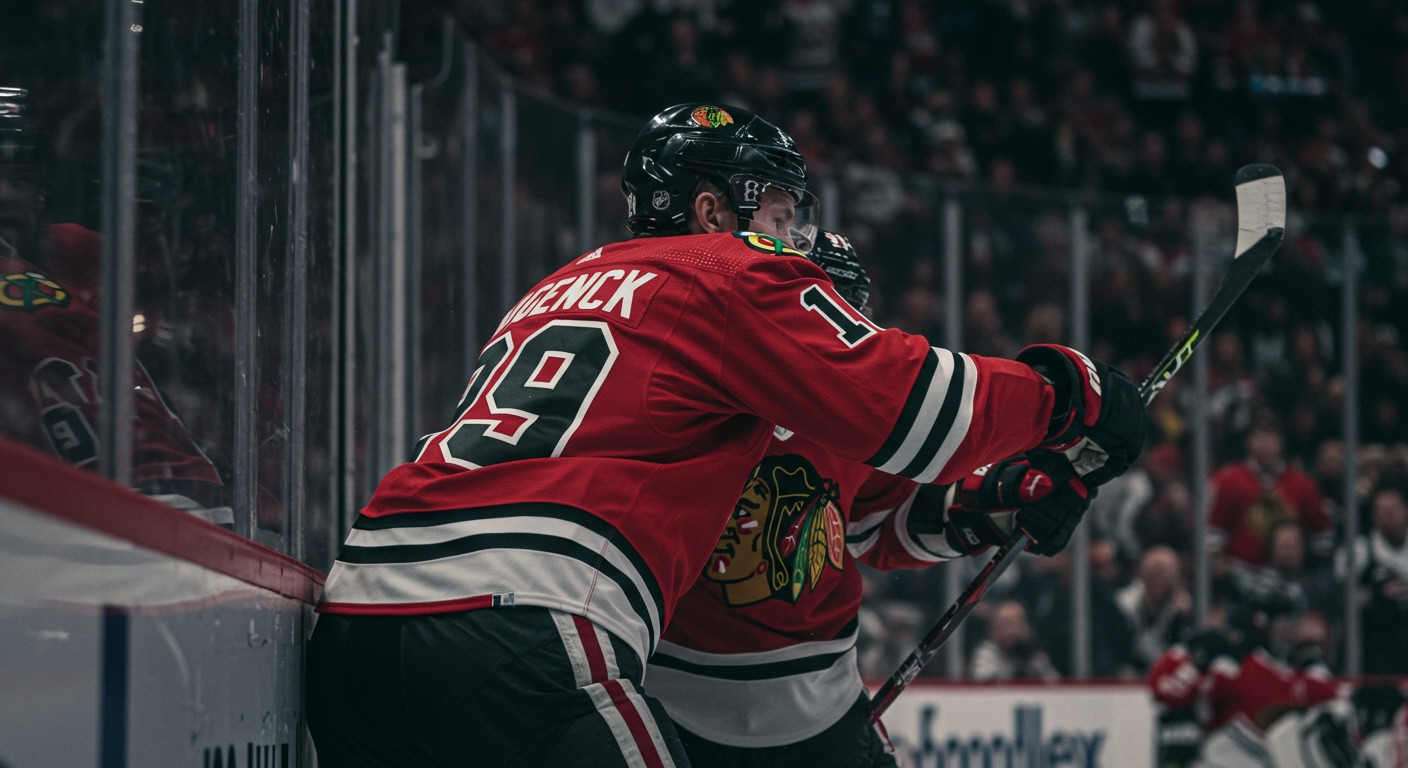Chicago, IL – The Chicago Blackhawks are reportedly poised to make a significant roster change ahead of the NHL’s upcoming June 30 deadline, with veteran defenseman TJ Brodie expected to part ways with the organization. According to a report by Harman Dayal and Thomas Drance of The Athletic, the separation is anticipated to occur via a contract buyout, a move that would carry both immediate and future salary cap implications for the club.
Performance Decline Precedes Expected Departure
The rationale behind the anticipated move appears rooted in Brodie’s performance over the recent season. The Athletic report highlighted a significant decline in the veteran’s play, going so far as to describe him as a \”flat-out liability\” on the ice for the Blackhawks. Statistical analysis cited in the report underscores this assessment, noting that Brodie held the team’s second-worst Net Rating, a metric often used to evaluate a player’s impact on goal differential while on the ice.
Signs of his diminished role became apparent late in the season. The 35-year-old defenseman was a healthy scratch after March 1, indicating that the coaching staff had opted to remove him from the lineup even when physically capable of playing. This decision typically signals a team’s dissatisfaction with a player’s performance or a strategic pivot towards evaluating other options on the roster.
Brodie joined the Blackhawks after a tenure with the Toronto Maple Leafs. His acquisition was initially seen as adding a layer of experience and defensive stability to a rebuilding roster. However, as the season progressed, his integration and effectiveness seemingly did not meet expectations, leading to the current situation where a separation is considered the most likely path forward.
Financial and Roster Implications of a Buyout
The expected method of departure, a contract buyout, is a specific procedure governed by the NHL’s collective bargaining agreement. A buyout allows a team to terminate a player’s contract prematurely but requires the team to continue paying a portion of the remaining salary over a period twice the length of the remaining term. This process impacts the team’s salary cap calculation for multiple years.
For the Chicago Blackhawks, buying out TJ Brodie’s contract is projected to yield some salary cap relief in the short term, though not without a future cost. A buyout would result in a salary cap savings of just over $500,000 for the upcoming 2025-26 season. While providing modest flexibility in the immediate future, the team would incur a charge of $258,333 against the salary cap in the subsequent 2026-27 season. This structure of cap charges is a standard outcome of NHL buyouts, where immediate savings are balanced against future financial commitments.
Beyond the financial aspect, a buyout creates a valuable roster spot. For a team like the Blackhawks, currently undergoing a significant rebuild focused on youth and future development, this is a crucial benefit. Clearing a spot on the defensive depth chart allows the organization to potentially integrate younger defensemen into the lineup. Prospects such as Sam Rinzel or Artyom Levshunov, who represent key components of the team’s future defensive corps, could see increased opportunities and ice time as a result of Brodie’s departure. This aligns with the team’s long-term strategy of evaluating and developing its prospect pool at the NHL level.
What Lies Ahead for Brodie?
For TJ Brodie himself, an anticipated buyout presents both a challenge and a potential opportunity. At 35 years old, his performance decline noted in The Athletic report might make securing another NHL contract complex. However, being released from his current contract via buyout could allow him to seek employment with a different team, potentially one looking for experienced depth on a short-term, low-cost deal.
The report suggests that this scenario could potentially allow the veteran defenseman to play for a playoff contender. While his performance may have dipped, his extensive experience in the league, including time spent with competitive teams, could still be valuable to a club seeking defensive depth and leadership for a postseason push. The market for veteran players on team-friendly contracts often includes teams aiming to strengthen their rosters ahead of or during the playoff race.
The June 30 deadline looms as the critical date by which the Blackhawks must finalize their decision regarding Brodie’s future. Whether a buyout is formally executed, the expectation is that the veteran will no longer be part of the team’s plans moving forward.
This anticipated move underscores the strategic decisions facing NHL teams, particularly those in a rebuilding phase. Balancing veteran presence with the imperative to develop young talent and manage salary cap resources is a constant challenge. The expected parting of ways with TJ Brodie represents one such decision for the Chicago Blackhawks as they continue to shape their roster for the seasons to come.














